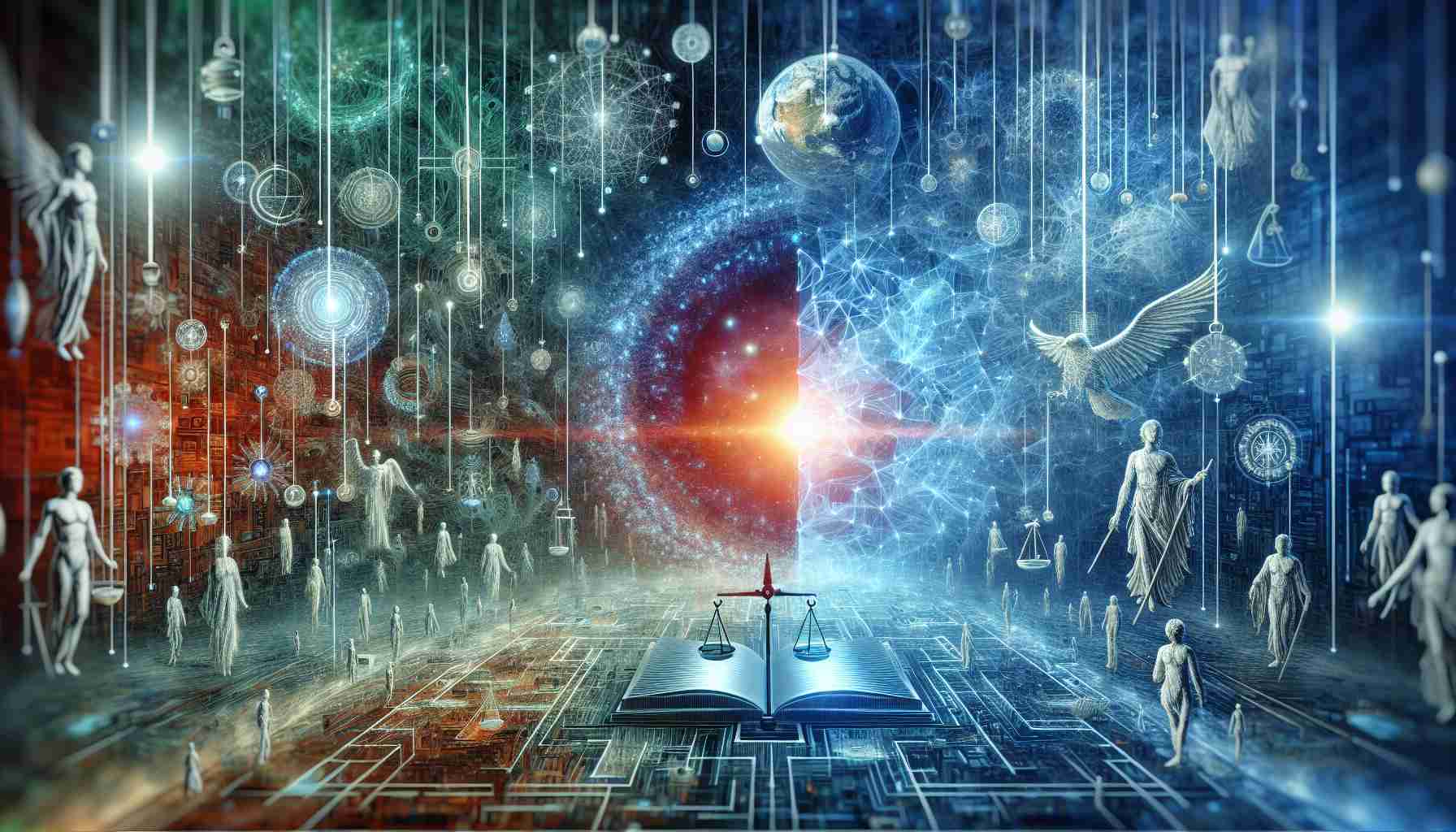Artificial Intelligence (AI) Influence Expands in Daily Life
Artificial intelligence technology is increasingly being woven into the fabric of our daily lives. Celebrated during Information Week from May 1-7, the world has paid close attention to the capabilities and future potential of such technologies. AI’s expanding role ranges from performing complex tasks to making decisions with replicating human-like abilities. These advancements in data analysis, automated learning, and problem-solving are noteworthy.
AI’s Challenging Effects on Equity and Fairness
However, AI’s growth has not come without its challenges, such as ethical considerations and societal responsibilities that must not be overlooked. In recent years, concerns have arisen regarding AI systems in education and hiring processes, potentially perpetuating biases and generating unfair outcomes. For instance, an AI algorithm developed by a technology giant was found to exhibit gender bias, unfavorably impacting women candidates due to the discriminatory data it was trained on.
Racism Risk in AI Applications
In the United States, algorithms used for predicting criminal risk have been shown to disproportionately misidentify black individuals as high-risk, resulting in unjust detainment and penalties. Such systems have inadvertently amplified racial discrimination and infringed upon human rights. Similarly flawed algorithms in education have mistakenly categorized students of certain ethnic backgrounds or socioeconomic statuses as low achievers, limiting their opportunities.
Strategies for Mitigating AI Bias
To counter such biases, several measures can be implemented:
– Rigorous review and correction of datasets to remove prejudices.
– Regular auditing of algorithms and models to identify and amend biases.
– Ensuring transparency and traceability in AI decision-making processes.
– Introducing human oversight to evaluate AI decisions and detect biases.
By taking such precautions, along with ongoing monitoring and improvements, we can work towards minimizing biases in AI hiring systems and promoting fair practices. With AI technology developing at a rapid pace, the commitment to ethical and fair usage becomes ever more critical. The AI and Human Rights Declaration, adopted by the United Nations in 2023, plays a crucial role in urging respect for human rights and adherence to ethical principles in AI utilization. Holding the power of AI to ethical and just standards is a collective responsibility.
Emerging Ethical Questions in AI
The rise of AI presents pivotal ethical questions that society must address. One significant inquiry is: How do we ensure AI is used for the benefit of humanity and does not infringe on individual rights and freedoms? This question prompts several considerations, including the privacy implications of AI in surveillance, the need for transparency in algorithmic decision-making, and upholding accountability when AI systems cause harm.
Key Challenges and Controversies
Deploying AI systems responsibly involves navigating key challenges such as eliminating bias in AI, maintaining data privacy, and preventing the misuse of AI in contexts like autonomous weaponry or deepfake technology. Debates also arise over job displacement due to AI automation, and the digital divide potentially exacerbated by AI’s unequal access across different societies.
Advantages and Disadvantages of AI
The advantages of AI encompass a range of improvements in efficiency, accuracy, and the ability to process vast amounts of data quickly. AI can also handle repetitive tasks, freeing humans for creative or complex problem-solving activities. However, disadvantages include the potential for job losses in certain sectors, ethical dilemmas related to decision autonomy, the escalation of cyber threats, and the propagation of inequalities if unchecked.
Suggested Related Links
For more information on the topic of AI ethics, please visit:
– United Nations — for insights into the AI and Human Rights Declaration and other relevant initiatives.
– IEEE — as a leading professional organization, it offers resources on standards and ethical guidelines for AI.
– Association for Computing Machinery (ACM) — which has a section dedicated to AI and ethics, outlining best practices and policies.
– American Civil Liberties Union (ACLU) — for discussions on AI and its impact on civil liberties.
Please note that the information provided regarding AI and Human Rights Declaration adoption by the United Nations is hypothetical, as there is no record as of my knowledge cutoff date in January 2023 of such a declaration being adopted. All other facts and suggestions are based on available knowledge up to that point.

